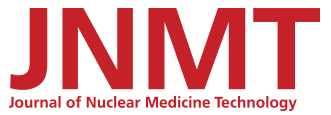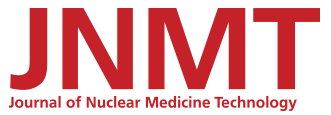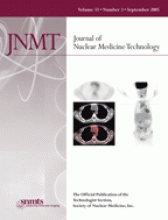Abstract
It is increasingly acknowledged that, in addition to prior academic achievement, there is a need to seek evidence for the abilities and personal qualities of applicants to health professional programs at a university. The aim of this study was to determine the specific abilities and personal qualities required for excellence in practice in the relevant professional domains of medical radiation science (MRS).
Methods: A focus group, consisting of MRS academic staff, developed a questionnaire. The questionnaire was sent to senior MRS practitioners throughout Australia and 213 were returned for analysis. Respondents were asked to rate 40 specific abilities and qualities (referred to as “elements”) on a 5-point scale.
Results: Two hundred thirteen completed questionnaires were returned, a 53% response rate. One hundred twelve respondents (52%) indicated they currently worked in diagnostic radiography (DR), 57 (27%) worked in radiation therapy (RT), and 44 (21%) worked in nuclear medicine (NM). The duration (mean ± SD) of the respondents’ professional practice in MRS was 14.5 ± 10 y, with durations ranging from 1 to 43 y. Raw scores and mean scores were examined for any influence of the variable “Number of Years in Practice.”
Discussion: No major differences were found between the ratings provided by the practitioners from the 3 different MRS professional domains of NM, RT, and DR. Factor analysis indicated the existence of 3 orthogonal factors in the questionnaire data: (a) treat others professionally and ethically, (b) engage with and be open to others, and (c) problem-solving ability. Qualitative analysis of the respondents’ comments provided similar themes: (a) the need for professional competence (knowledge and abilities), (b) ethical behavior, (c) the need for a technology and a people orientation, and (d) MRS should be the first choice of MRS students and not a second choice to other professional degrees.
Conclusion: Senior medical radiation scientists identified professionalism, ethical behavior, engagement with and openness to others, intrinsic specific motivation, and an orientation to people and technology as nonacademic qualities required for excellence in the practice of the professions embraced by MRS.
Medical Radiation Science (MRS) is a term frequently used to describe the collective of 3 distinct professions that, in their own way, use ionizing radiation to perform medically important diagnostic and therapeutic procedures. The 3 professions are nuclear medicine (NM), radiation therapy (RT), and diagnostic radiography (DR).
Each profession requires their respective practitioners to possess a high degree of understanding of and competence in a variety of domains of practice. Arguably, however, the critical domain in the provision of care, which is common to all 3 professional groups, is patient interaction/communication skills. Practitioners are frequently required through the use of their professional skills to assist patients of varying ages who may be confused, distressed, or in pain.
Academic and clinical staff within the discipline of MRS at The University of Newcastle hold the philosophy that academic assessment alone is not an adequate tool to determine which applicants are suitable for admitting to the Bachelor of Medical Radiation Science (NM, RT, and DR) degree programs; it is desirable also to assess other attributes and qualities in applicants. This view is based on the belief that, in the domain of patient interaction/communication, well-developed skills and personal qualities are required if a practitioner is to achieve a high standard of professional practice. Thus, it is considered that appropriate attributes and qualities should be evident or nascent within students at the start of their degree programs so they might benefit maximally from their university training in the professional skills domain.
Since 1990, the Faculty of Health (at the time, the Faculty of Medicine and Health Sciences) has used a Personal Qualities Interview (PQI) in conjunction with academic criteria to select students for the Bachelor of Medical Radiation Science (NM) program. The 5 major domains assessed by the PQI are communication, motivation, team work, empathy, and ethics. The effectiveness of a similar interview procedure used by the Faculty to select Bachelor of Medicine students has been documented in the literature (1–5).
Currently, Newcastle is the only university in Australia that assesses an applicant’s suitability for a career in NM, RT, and DR using the dual tools of a PQI and academic ability. These are used to create a ranking of applicants who possess the necessary mix of academic and nonacademic qualities or traits.
The aim was to refine the selection procedure for MRS students to accommodate the views of MRS professionals about what qualities these students should possess.
MATERIALS AND METHODS
To determine the personal qualities and abilities that practicing MRS clinicians consider to be the most important for excellence in MRS practice, academic staff members of the Discipline of MRS in the School of Health Sciences together with the Faculty of Health Teaching and Learning Unit designed a survey instrument to be completed by Senior MRS clinical staff in NM, RT, and DR.
Initially, a focus group of 10 MRS academics considered a list of specific desirable and undesirable personal qualities, abilities, and traits. The list, developed at Newcastle for similar research with the profession of occupational therapy, was modified to take into account specific professional issues pertinent to the 3 MRS professions of NM, RT, and DR.
A collection of 40 different traits, behaviors, and attitudes (referred to as “elements”) were selected by the focus group and formatted as a questionnaire under 5 categories: Abilities (10 elements), Qualities (11 elements), Values (4 elements), Motivation (5 elements), and Negative Traits (10 elements). These categories were used to give structure to the presentation of the elements within the questionnaire.
Each element was assigned an alpha-numeric code that denoted the element and its category. For example, 1A represented “Effective verbal communication skills,” which is the first trait from the Abilities category.
The questionnaire was sent to senior clinical MRS staff in 400 centers across Australia. These centers represent the majority of MRS clinical centers in Australia, where students are placed to gain clinical experience. Respondents were asked to rate each element from the 5 categories on a 5-point scale ranging from “essential” to “irrelevant” based on their own perspective of their profession (i.e., NM, RT, or DR). Respondents were also given the option of adding additional elements to each of the categories if they felt these were not represented in the questionnaire. Figure 1 gives an example from the Abilities category.
Example of the questionnaire design shows the Abilities category and the 10 elements within that category.
The analysis of the questionnaires was undertaken in 2 stages. First, the ratings of the elements of the questionnaire (quantitative data) were empirically analyzed by examining the mean element and mean category ratings. The data were also subjected to factor analysis, a statistical technique that can determine the presence of latent or underlying variables (factors) within a dataset. In this instance, the ratings of elements that are correlated with each form clusters that indicate the presence of a factor. There are several techniques for determining the number of factors within a dataset, but typically the researcher is looking for the minimum number of factors that will account for a sufficient proportion of the variance within the dataset and that each factor extracted from the dataset can be meaningfully interpreted. This interpretation is subjective and relies on the researcher being able to label the factor by considering the meaning of the elements that load on (correlate with) the factor. Loadings, like correlation coefficients, indicate the strength of the relationship between an element and its factor (6). The second stage of the analysis was to qualitatively analyze the additional elements and comments supplied by respondents.
RESULTS
Two hundred thirteen completed questionnaires were returned, a 53% response rate. One hundred twelve respondents (52%) indicated they currently worked in DR, 57 (27%) worked in RT, and 44 (21%) worked in NM. The duration (mean ± SD) of the respondents’ professional practice in MRS was 14.5 ± 10 y, with durations ranging from 1 to 43 y. Raw scores and mean scores were examined for any influence of the variable “Number of Years in Practice.” No significant relationships were found. Thus, the results presented in the analysis are not skewed or biased in any direction based on a respondent’s “Years in Practice.”
Quantitative Analysis
To determine the elements considered most important by the total sample, the mean response to each element was calculated. Although there was a tendency for the majority of the respondents to rate most elements as either essential (scored as 5) or important (scored as 4), it was still possible and considered reasonable to rank the elements according to their mean rating. “Verbal communication skills” was the highest rated element overall, whereas “Objects person enjoys—working with machines, instruments” was the lowest rated element.
An analysis by category was also undertaken. The elements presented within the questionnaire were grouped into 5 categories: Abilities (A), Qualities (Q), Values (V), Motivations (M), and Negatives (N). The means of element items by category were calculated and compared. As shown in Figure 2, the category of Values had the highest item means. However, a 1-way ANOVA did not reach statistical significance. Additionally, no statistical differences were observed between the means of category items for each MRS profession.
Item means and 95% confidence intervals for each category for the total sample.
Whereas Table 1 indicates the highest to lowest rated elements for the entire sample, the data were also considered in terms of the opinions of the 3 MRS professions. Table 2 lists the rankings of the top 6 traits from Table 1, with the relative ranking from each of the MRS professions as well as the lowest ranked trait for all 3 MRS professions. Some differences between professions in the element rankings were noted; however, more noteworthy was the generally high level of agreement between the 3 MRS professions.
Combined MRS Professions Highest to Lowest Mean Rating for All Elements
Six Highest Ranked Items for Sample and by Each MRS Profession and Lowest Ranked Item by Each MRS Profession
The highest rated elements rated by the 3 individual MRS professions appeared, hypothetically, to form into 3 major element clusters underlying excellence in MRS practice:
The ability, or quality, of engagement with others (elements 1A and 4Q and implied by the lowest rated item 2Q).
A high level of problem-solving ability (element 3A).
To treat others in an ethically appropriate way (elements 5N, 11Q, and 4V).
To examine this possibility, the data were subjected to a principal components factor analysis. Examination of the initial factor analysis output suggested that a 3-factor structure might underlie the data. A 3-factor solution with a Varimax rotation (factors are orthogonal/unrelated to each other) was performed and found to account for 32% of the total variance of the dataset, a proportion that is considered acceptable when questionnaire data are subjected to factor analysis. Table 3 shows the highest loading elements (>0.45) for each of the 3 factors.
Three-Factor Solution Shows Highest Loading (>0.30) Elements for Each Factor
The clusters of elements derived from the factor analysis (Table 3) were examined and labels for each factor were conceptualized. Factor 1 was labeled: Treat others professionally and ethically; Factor 2 was labeled: To engage with and be open to others; and Factor 3 was labeled: Problem-solving ability.
Qualitative Data Analysis
Sixty-seven respondents (32% of the sample) provided additional comments that they recorded on the questionnaire after rating the elements in each of the 5 categories. The analysis of these comments was subjective and was undertaken by compiling the comments by category and inspecting each list for similarities and frequencies.
Four themes emerged from examination of the comments:
Professional Competence. (a) Learned competence—working with technology, professional development, life-long learning, and seeking best practice. These competencies can generally be learned through formal education reinforced by workplace practice or culture. (b) Ability-based competence—such as spatial skills, thinking in 3 dimensions, problem solving, and critical thinking. These abilities are related to the concept of fluid intelligence, which is a predisposition rather than a learned skill. This theme equates to the problem-solving factor found in the quantitative analysis.
Ethical and Empathic Behavior. (a) An orientation toward the patient—care, patience, friendliness, compassion, kindness, outgoing, and not bullying, superior, judgmental, or sarcastic. (b) An orientation toward team work—respect for colleagues, other health professionals, respect and enthusiasm for the profession itself, and not a loner. This theme is similar to the ethical factor and engagement factor found in the quantitative analysis.
The Need for a Technology Orientation and a People Orientation. A successful MRS practitioner has an interest and enthusiasm for the technology and science of MRS and is able to interact appropriately and effectively with patients, colleagues, staff, and other professions. This theme overlaps with the theme of ethical behavior in terms of how an individual treats others and with the theme of professional competence. The message underlying this theme appeared to be “Competence is necessary but not sufficient. Excellence in MRS requires people skills.”
MRS is First Choice. Several respondents indicated that MRS should be the first choice of students; it should not be the second choice to other professional degrees, such as medicine or physiotherapy. In others words, MRS students should be motivated by MRS.
DISCUSSION
Analysis of the quantitative questionnaire data indicated that the most important qualities required of MRS practice involved treating others professionally and ethically, engaging with and being open to others, and having the ability to reason logically and solve problems. These qualities were reflected in the analysis of the qualitative data collected in the questionnaire, which indicated a need for ability-based competence, ethical behavior with an orientation toward the needs of the patient and team work with colleagues and other professionals, the need for a people and a technology orientation, and a motivation to work in the profession of MRS.
Although some differences were apparent between the professions in their ratings of the questionnaire elements, there was a substantial level of agreement about the high-ranked elements. Of the 40 traits rated, 6 were common to the 11 highest rated elements of each MRS profession (Table 3). Additionally, all 3 professions (nuclear medicine scientists, radiation therapists, and diagnostic radiographers) rated the element “Objects person—enjoys working with machines, instruments” lower than any other element in the questionnaire. This indicates that, whereas MRS practice requires a scientific approach and skills in technologies, the profession is strongly people oriented regardless of the MRS profession.
The content of the PQI used in the selection of applicants into MRS programs at the University of Newcastle appears to reflect appropriately the findings of this research. The inclusion of the domains of communication, motivation, team work, empathy, and ethics in the PQI is supported by the findings reported here.
However, one clear factor that emerged from the data that might not be assessed in the Newcastle MRS selection procedure is that of cognitive ability. Logical reasoning, problem solving, spatial skills, and critical thinking were given emphasis by the respondents in their ratings of the questionnaire elements but are not investigated during selection. The need for these cognitive skills was also identified by respondent comments within the theme of ability-based competence. Though the selection procedure does include past academic achievement, such as that reflected by the University Admission Index, previous research has indicated that there is substantial variability in logical reasoning and problem-solving scores in uniformly high academic achievers (7). Put another way, high academic achievement does not necessarily indicate high levels of logical reasoning, problem solving, spatial and critical thinking ability.
Such abilities are not typically measured through interviewing but through the administration of “pen-and-paper” tests (or a computer-based version of such tests). Thus, the findings of this research suggest that a test of logical reasoning, problem solving, spatial and critical thinking ability could be usefully added to the Newcastle MRS selection procedure.
Though the findings from the questionnaire support the inclusion of the PQI domains of communication, motivation, team work, empathy, and ethics as valid selection criteria, the results do not indicate how well the PQI measures these domains. The specific personal qualities found in this research could be used as a guide to researching the availability of personality questionnaires to measure these qualities. Relationships between scores on such questionnaires and PQI scores would provide further evidence of the effectiveness of the PQI. Ultimately, questionnaires, ability tests, and PQI scores could be used in a longitudinal study as predictors of professional behavior and competence.
CONCLUSION
The abilities, qualities, and values considered to underlie excellence in MRS practice are essentially the same for each MRS profession. The highest rated and ranked elements can be conceptualized as reflecting 3 broad factors: (a) engagement with others, (b) problem solving, and (c) ethical behavior.
These 3 factors were also reflected in the qualitative analysis together with a fourth factor of motivation to become a MRS practitioner. The data suggest that the truly competent MRS practitioner is a person who not only has a high level of ability, skill, and knowledge but also is able and motivated to engage appropriately and empathically with a diverse range of individuals within the bounds of professional expectations.
Footnotes
For correspondence contact: David G. Lyall, B (MRS) Nuclear Medicine, Box 16, Hunter Bldg., The University of Newcastle, Newcastle, 2308, New South Wales, Australia.
E-mail: david.lyall{at}newcastle.edu.au









